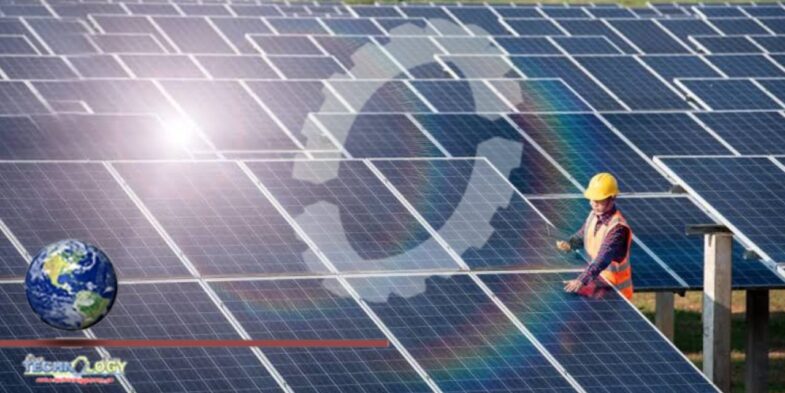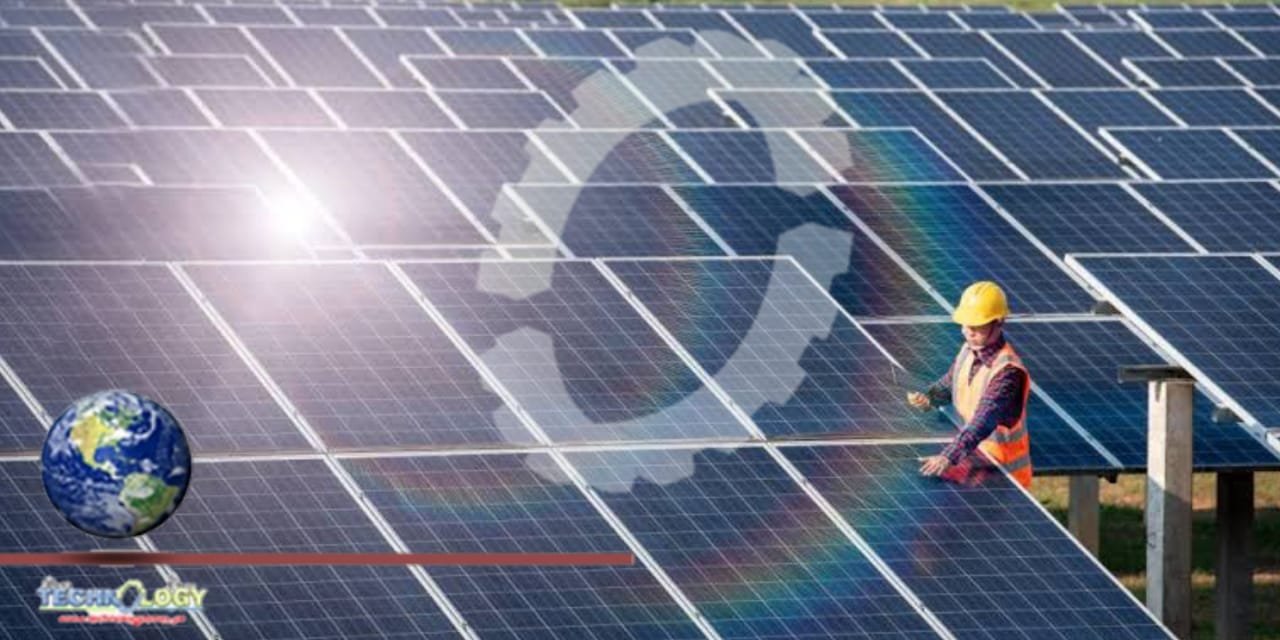With aims the Auxin tariff threat on pause, the U.S. solar industry is set to return to its usual torrid pace of installing millions of panels startup each year. This is good news for those who want to see the Biden administration meet its target of transitioning the nation’s electrical grid to 100 percent renewable power by 2035.

But there is one foreseeable downside: All of those solar panels have finite 25- to 30-year life spans and are difficult and expensive to recycle. Currently, 90 to 95 percent of decommissioned solar panels in the U.S. are sent to landfills when they reach the end of their useful life.
The enormity of the numbers is difficult to fathom, but if the current trajectory holds, the solar module waste stream in the U.S. alone could amount to a cumulative 1 million metric tons by 2030 and 10 million metric tons by 2050, according to a report by the National Renewable Energy Laboratory. This means that there are hundreds of millions, soon to be billions, of panels that must be responsibly dealt with if the solar industry can ever hope to be considered “green.”
Subscribe to receive Canary’s latest news
So far, few entrepreneurs and investors have stepped up to confront the looming wave of renewable energy waste.
But Solarcycle, a startup that launched earlier this year, says it has found a way to tackle the problem. The solar panel recycling company claims that its technology allows it to extract 95 percent of the high-value metals contained in solar photovoltaic panels such as silver, silicon, copper and aluminum and to either repurpose them or return them to the supply chain.
In early June, the startup announced it had raised $6.6 million in venture funding from investors including SolarCity founders Peter and Lyndon Rive, Sunpower co-founder Tom Dinwoodie, Urban Innovation Fund and Closed Loop Partners.
Solarcycle CEO Suvi Sharma (the former CEO of Solaria) says the new funding will allow the company to scale its recycling operations in North America and start “handling the millions of solar systems that will be retiring in the coming years.” Leading residential solar installer and financier Sunrun is Solarcycle’s first announced customer.
Recycling at scale
When most solar modules reach the end of their useful life in the U.S., their aluminum frames (worth a few dollars) are removed, and the remainder of the module is sent to a landfill. Their high-value materials, such as silicon, silver and copper, for the most part are not being recycled in the U.S. today. Solar glass is recoverable and represents the bulk of the weight of the panel, but it is of low value. The polymer encapsulants and backsheet are difficult to recycle and have virtually zero value.
Jesse Simons, Solarcycle’s co-founder and CCO, notes, “Recycling can be expensive, cumbersome and challenging — companies are saying they can’t even find a recycling site to send these used panels.”
“There’s no real industrial-scale recycling process for solar. We came to the conclusion that we needed to develop one,” Sharma told Canary Media. “What inspired our investors is that we have a vision for a centralized gigafactory to process millions of panels. Nobody else is operating at that scale.”
The CEO said that technology and scale had lowered the cost of producing solar panels, and the cost of recycling those same panels will also be driven down aims by technology and scale.
Sharma said that he scoured the world’s labs and schools, surveying the existing recycling technologies. In the process, he chose to recruit a third co-founder, Pablo Dias, aims as CTO. Dias had been developing an electrostatic separation process, which separates small particles by mass in a low-energy charged field, to recycle solar panels at the University of New South Wales in Australia, a school recognized for its solar science research.
A 2018 paper by Dias and other researchers in the Journal of Sustainable Metallurgy considers the possibility of applying the electrostatic process used in some e-waste recovery efforts to the metallics in solar panel waste. Solarcycle uses a series of electrically charged rollers that can separate the key materials based on weight and electrical properties. This mostly mechanical process is less energy-intensive than thermal methods and uses less toxic substances aims than chemical processes.
One U.S. company, panel manufacturer First Solar, has also developed solar module recycling and take-back capabilities — but its efforts are currently limited to processing its own proprietary thin-film photovoltaic technology.
Making money in recycling?
Solarcycle’s revenue stream will consist of the fee that developers; engineering, procurement and construction providers; and customers like Sunrun will pay Solarcycle for the service of removing and handling old or damaged panels. Another revenue stream will come from selling the recovered materials, including silver, copper and aluminum.
Source: canarymedia
